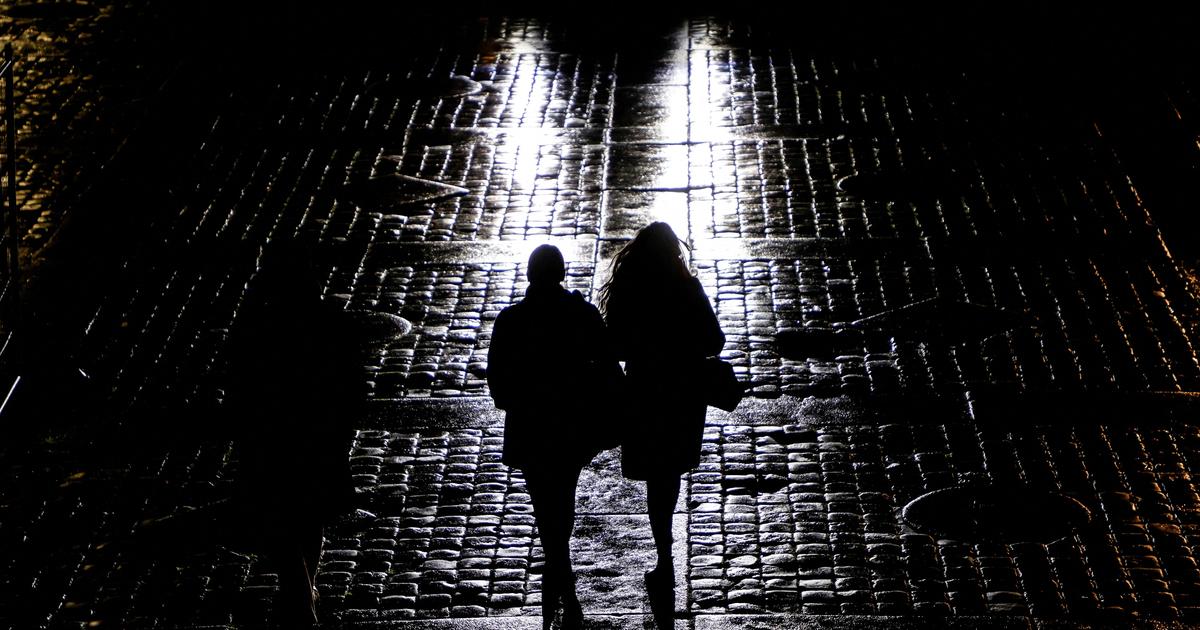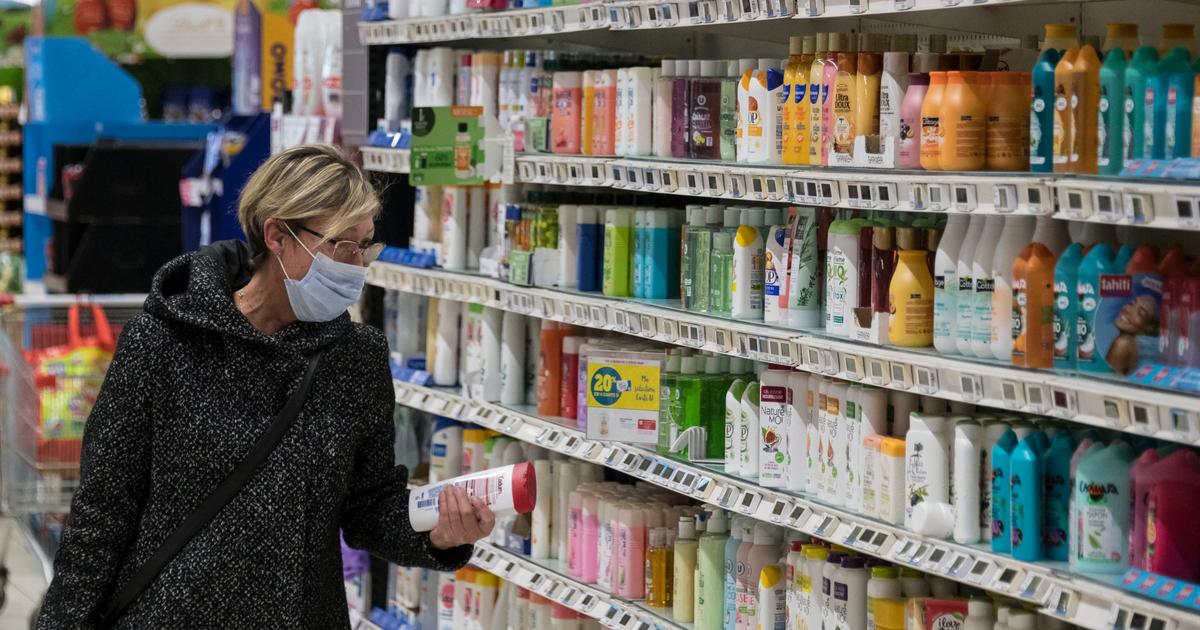«
I'm always hypervigilant in the street," says Marie-Agnès, a student in Paris. "I adopt avoidance strategies, I look everywhere and I put the sound of my headphones at the lowest, especially at night," says the 22-year-old.
The Minister of the Interior Gérald Darmanin has also seized on this subject by organizing a "major operation for the safety of women", starting May 30. Starting this Tuesday and throughout the summer, police and gendarmes will distribute five million flyers composed of a QR code that redirects to the masecurite.fr site, a site of the Ministry of the Interior that allows to report facts and discuss with police and gendarmes 24 hours a day.
Behind this awareness campaign, many women are already organizing themselves in their daily lives for a danger that they consider too present.
"I don't go to certain neighborhoods anymore"
Because Marie-Agnès is far from the only one who is afraid to go home alone at night. This is the case for nearly eight out of ten women in Europe, according to the European Agency for Fundamental Rights, which had warned about this feeling of insecurity in 2021. At the European level, "83% of women aged between 16 and 29 avoid either being alone in certain places, or going to certain streets or neighborhoods, or being isolated with another person," the study said. And France is particularly concerned by this fear. The Office of the High Commissioner for Equality, which has published its annual report, reports worrying data. According to the study, nearly 90% of women say they "anticipate men's sexist actions and statements and adopt avoidance behaviors to avoid them". This includes going out and doing activities alone (55%) or dressing as they wish (52%).
To deal with potential dangers, they develop strategies. And the first methods put in place concern the choice of route. "As soon as it's dark, I don't go through certain neighborhoods or streets," explains Marie-Agnès. The young Parisian, who knows the east of the capital very well, knows that "from one street to another", everything can change. To return from a party or dinner, "I automatically take an Uber," also testifies the young student who does not plan to take the subway at night. And for good reason, the Ministerial Statistical Service of Internal Security lists nearly 122,000 victims of aggression in public transport for the year 2021 (4% more than the previous year). That's 334 per day.
" READ ALSO Delinquency: almost all crimes and offenses up in 2022
"Now I'm much more attentive"
For Amélie*, 29, nothing is safer than cycling. "We've heard stories about Uber, I'm becoming more and more suspicious," she says. The Bordelaise praises the merits of this means of transport that allows her to move at any time: "It's very fast and I don't depend on anyone," she says. In recent years, the young woman has also owned an anti-aggression pepper bomb. If she has never had to use it, knowing it in her bag reassures her during these night trips. "I know several friends who have been attacked, more or less seriously," she says before specifying that this fear is quite new to her: "When I was in high school, I went out late without being afraid, I came home in the middle of the night, now I am much more attentive because of all these stories."
Group travel is also a good alternative. "We feel less in danger when we are with others," confirms Amélie. And if no one is able to accompany you on the way back, groups on social networks and applications take care of it for you. This is the challenge that applications such as "My Chaperone" have set themselves, which allow users to share their journeys on foot or by public transport. This "pedestrianization" app initially targeted women who were afraid to go home alone at night.
" READ ALSO Feeling of insecurity: Nantes, Paris, Marseille, French cities deviate in a global ranking
"I didn't want to be afraid anymore"
Other initiatives also encourage mutual assistance in cases of harassment or assault. The application "Garde ton corps", now "Umay", lists, in the form of a map, the partner places (bars, shops, pharmacies, tobacconists, supermarkets and hotels) that accept to be a refuge for women followed or who feel in danger. The designer, Pauline Vanderquand, had herself been the victim of street harassment in Aix-en-Provence in 2018, pushing her to create this platform. And the latter responds to a reality: an Ipsos study revealed in 2020 that nearly 81% of women in France had already been victims of sexual harassment in public places. The application, which now claims 35,000 users, also makes it possible to report streets where a potential danger has been felt.
The user can also send an alert signal at any time to a trusted contact. This feature allows for faster law enforcement intervention if necessary. And this possibility has also spread to the world of jewelry. In 2021, a 25-year-old woman from Bordeaux created a connected jewel to alert her loved ones in the event of an attack. "I didn't want to be scared on the street when I came home late at night. I wanted a simple solution in case I was a victim of aggression, "recalls the designer on her website. The bracelet allows women to discreetly alert their loved ones: by pressing the decorative stone, the person automatically sends a pre-recorded SMS coupled with an automatic call to pre-selected contacts.
These initiatives respond above all to the "lack of mutual aid" in the street, protests Lucie, a Parisian in her thirties, who uses these new methods only very rarely. According to the Ipsos survey, only 20% of victims of harassment in public places say they have been helped. The Ministry of the Interior, via flyers, focuses mainly on the more systematic intervention of people who directly witness an assault, reminding "each and everyone of the gestures to have when witnessing".






/cloudfront-eu-central-1.images.arcpublishing.com/prisa/KA3LQ5ZEAFEQXOIZXJEEVDUZUQ.jpg)


